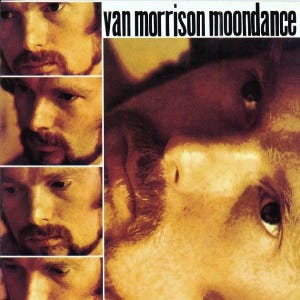Networking for People Who Don't Like Networking
Even if you loathe networking, you can still painlessly expand your connections.
Let me start off this post by saying I do not really enjoy networking. In fact, the thought of going to a happy hour where I don’t know anyone gives me social anxiety simply typing it out. I’ve done the networking events and the conferences meant to connect people and have had a tough time developing and maintaining relationships out of them. I’m already an introvert and my lack of passion around networking isn’t the best set up for a career in client services.
While I have overcome a good amount of my networking reticence, though I do still find myself bristling at forced social events where I rarely feel as if I sound authentic. But one aspect of networking I enjoy the most is being a connector - essentially someone who is good at connecting two people who might have similar social or professional interests. Being seen as a connector has upped my networking skills and confidence.
Internal vs. External Networking
When I first started working I always viewed networking as an external exercise - something you reserved for seeking out connections outside of your current place of employment. And this is important, particularly for client service roles where business development will become a part of your job (whether you like it or not.)
But don’t sell the internal networking piece short. In fact, looking back over a storied career of data-based insight derivation, the strongest and most valuable connections I’ve made have been within the companies I’ve worked for.
You get what I call the “natural” network at your job - these are the people you work with regularly. While you’re in role, they’re essentially your work friends (some become real friends - there is a difference) but once you go somewhere else or transfer clients or offices they’re now automatically part of your network.
But there’s an additional key layer of internal networking and it’s the people you work near, but not with. You see them around the office, your recognize them, you might even say hi as you’re both waiting for your fourth free cup of coffee to get through the day. But you don’t really know them and you certainly wouldn’t consider yourself connected to them beyond the most tenuous of acquaintanceships.
But these are people you should know, and it’s actually a great way to begin to eventually build up an external network. Being a millennial, I’m part of the job hopping generation that has left our Gen X and Boomer bosses wringing their hands. What used to be my internal network has transitioned largely to my external network given our age cohort’s proclivity to avoid the loyalty of older generations. (Ed.’s Note: A lot of ink has been spilled as to why millennials are job hoppers, but the answer is simple: when you’re told to work hard in school and go to a good college to set yourself up for financial freedom only to enter the post-collegiate workforce during the worst global economic crisis since the Great Depression, you quickly learn that it’s not the millennial worker that shuns loyalty, but the employer.)
So if you’re bad at external networking like me, focus on the internal version early on in your career and it will pay dividends down the line.
Long Term Investments
When I was a student in high school, I had a very hard time understanding the benefit of doing well academically and how it would translate to a well-paying job in the future. I did what was required of me - occasionally going above and beyond if the subject matter enticed me or if my parents could get through to me on a particular assignment or project - and that landed me right in that meaty part of the bell curve of student grade distribution.
When I entered the workforce, the paradigm shifted. While there are exceptions, what I found was that the harder you worked and the more effort you put in to creating quality work product, the more you got promoted and paid. Again, there are exceptions, but as a general rule the majority of people rising up in a company are not doing so by skating by and doing the bare minimum. This made me work harder and want to put out better work product (I am nothing if not extrinsically motivated, but that’s another newsletter for another time.)
A similar lens can be used for networking: very often the benefits of it are not immediate and any future help from your network is not clear nor guaranteed. If you go into networking with the view that it is a purely transactional play and something you are putting in simply to get something out, you will be disappointed. This mindset will also be quite transparent to people you’re “networking” with.
But if you approach it as a more long-term investment in your career (with the added plus of meeting interesting people), it will be quite obvious when your network is helpful and you will be very glad you invested the time and energy in it when you did.
Act Like a Child
Kids are natural networkers. When they’re at the age that rejection and awkwardness aren’t really at the forefront of their consciousness, their ability to connect with each other is uncanny.
At the park this past weekend, my daughter walked up to a girl she wanted to play with and asked if they could play together. The girl was older and even if the kids don’t care about rejection, there’s still a playground hierarchy by age. She politely declined, but pointed my daughter in the direction of another girl my daughter’s age who she might be interested in playing with. They spent the next hour running around the playground giggling.
My daughter was the beneficiary of a connector - someone with a solid base of a network who enjoys connecting people in their network who don’t know each other. The idea of connectors gained prominence in Malcolm Gladwell’s The Tipping Point and its efficacy is proven for anyone who has benefited from being connected by one of these networkers.
Having grown a solid network over the years, I make it a point to try to connect people I think would hit it off. Aiming to be a connector helps others and it strengthens my existing network - it’s a win-win. It’s not an endorphin rush on the level of playground giggling, but it’s still good networking.
It Works, With a Word of Caution
Since I got my working papers at 14, I’ve had give or take a dozen jobs. At least a third of them have had a networking connection, whether it’s hearing about the job through someone I knew or getting a foot in the door with a good word from a trusted connection to the firm I was looking at. Networking alone won’t get you the job (unless your dad is a client of the agency you’re working at or a family member is high up there, but that’s really nepotism as opposed to networking), but there are times when it could be a deciding factor in how you end up at a company.
There are things to watch out for in the networking game, and the main one revolves around DEI efforts. Referrals, which essentially operationalize your existing employees’ networks to drive potential employee traffic, can have the unintended consequence of maintaining and reinforcing a workforce that looks like your existing employee base. Many industries (agencies particularly so) have a diversity problem and over-relying on employee networks could very well exacerbate that issue.
It’s also crucial at a personal level to have a network made up of a diverse group of people - through the lens of socio-economic and ethnic background, sure, but also industry, role, and geography where possible. Being attuned to a variety of views and ideas is also an excellent way to avoid the dreaded echo chamber.
Get To It
Given the networking is a long-term play, the time to start is now. Reconnect with an old coworker, take a look through a trusted connection’s LinkedIn and see if anyone is interesting that you would want to connect to and ask for an intro, and ask that person you keep saying hi to in the hall at work for a coffee chat.
Grab Bag Sections
WTF Smartphone Users: There are times when I forget my AirPods at home and this can make my commute more annoying than it already is. Missing out on music or a good podcast is annoying in and of itself, but the kicker is when I get audibly assaulted by someone else’s viewing and listening habits on their phone because for some reason known only to the least considerate among us there is a large proportion of the population who feels it is ok to put their phone volume at full blast in public sans headphones.
Whether it’s FaceTime, scrolling through Instagram, or listening to music through those crappy little speakers at the bottom of the phone, it is beyond obnoxious. Further, the sheer irony of forgoing a $15 pair of headphones on a phone that costs anywhere from $300-$1200 is not lost on me as I picture the exact place I left my noise cancelling ear buds sitting on my kitchen counter back at home.
Album of the Week: I know we talk a lot about how albums begin and end - I think intros and outros are extremely important on records. That’s what makes what Van Morrison did on this album of the week all the more impressive.
Van starts the album in incredible form - “And It Stoned Me” is a truly incredible track. But when you follow it up with “Moondance,” Crazy Love,” “Caravan,” and “Into the Mystic” you have a perfect Side A to an album. The combination of disappointment from the lack of commercial success of his previous album Astral Weeks, moving to the Catskills with a wife whose name rhymes, and having an odd attempt at being unrequited BFFs with Bob Dylan led to the magic that is this album.
Quote of the Week: “I'm not the smartest fellow in the world, but I can sure pick smart colleagues.” - FDR
See you next week!









